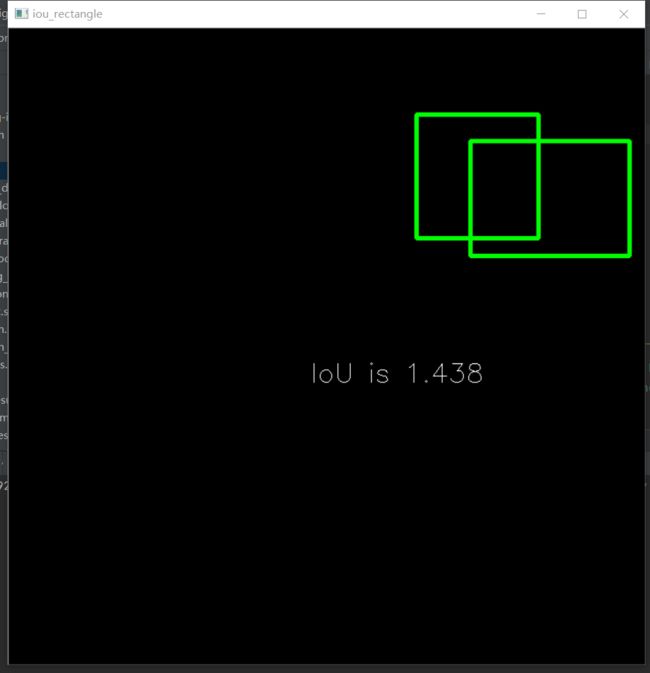
"""
bbox的数据结构为(xmin,ymin,xmax,ymax)--(x1,y1,x2,y2),
每个bounding box的左上角和右下角的坐标
输入:
bbox1, bbox2: Single numpy bounding box, Shape: [4]
输出:
iou值
"""
import numpy as np
import cv2
def iou(bbox1, bbox2):
"""
计算两个bbox(两框的交并比)的iou值
:param bbox1: (x1,y1,x2,y2), type: ndarray or list
:param bbox2: (x1,y1,x2,y2), type: ndarray or list
:return: iou, type float
"""
if type(bbox1) or type(bbox2) != 'ndarray':
bbox1 = np.array(bbox1)
bbox2 = np.array(bbox2)
assert bbox1.size == 4 and bbox2.size == 4, "bounding box coordinate size must be 4"
xx1 = np.max((bbox1[0], bbox2[0]))
yy1 = np.min((bbox1[1], bbox2[1]))
xx2 = np.max((bbox1[2], bbox2[2]))
yy2 = np.min((bbox1[3], bbox2[3]))
bwidth = xx2 - xx1
bheight = yy2 - yy1
area = bwidth * bheight
union = (bbox1[2] - bbox1[0])*(bbox1[3] - bbox1[1]) + (bbox2[2] - bbox2[0])*(bbox2[3] - bbox2[1]) - area
iou = area / union
return iou
if __name__=='__main__':
rect1 = (461, 97, 599, 237)
rect2 = (522, 127, 702, 257)
iou_ret = round(iou(rect1, rect2), 3)
print(iou_ret)
img=np.zeros((720,720,3), np.uint8)
cv2.namedWindow('iou_rectangle')
"""
cv2.rectangle 的 pt1 和 pt2 参数分别代表矩形的左上角和右下角两个点,
coordinates for the bounding box vertices need to be integers if they are in a tuple,
and they need to be in the order of (left, top) and (right, bottom).
Or, equivalently, (xmin, ymin) and (xmax, ymax).
"""
cv2.rectangle(img,(461, 97),(599, 237),(0,255,0),3)
cv2.rectangle(img,(522, 127),(702, 257),(0,255,0),3)
font = cv2.FONT_HERSHEY_SIMPLEX
cv2.putText(img, 'IoU is ' + str(iou_ret), (341,400), font, 1,(255,255,255),1)
cv2.imshow('iou_rectangle', img)
cv2.waitKey(0)
